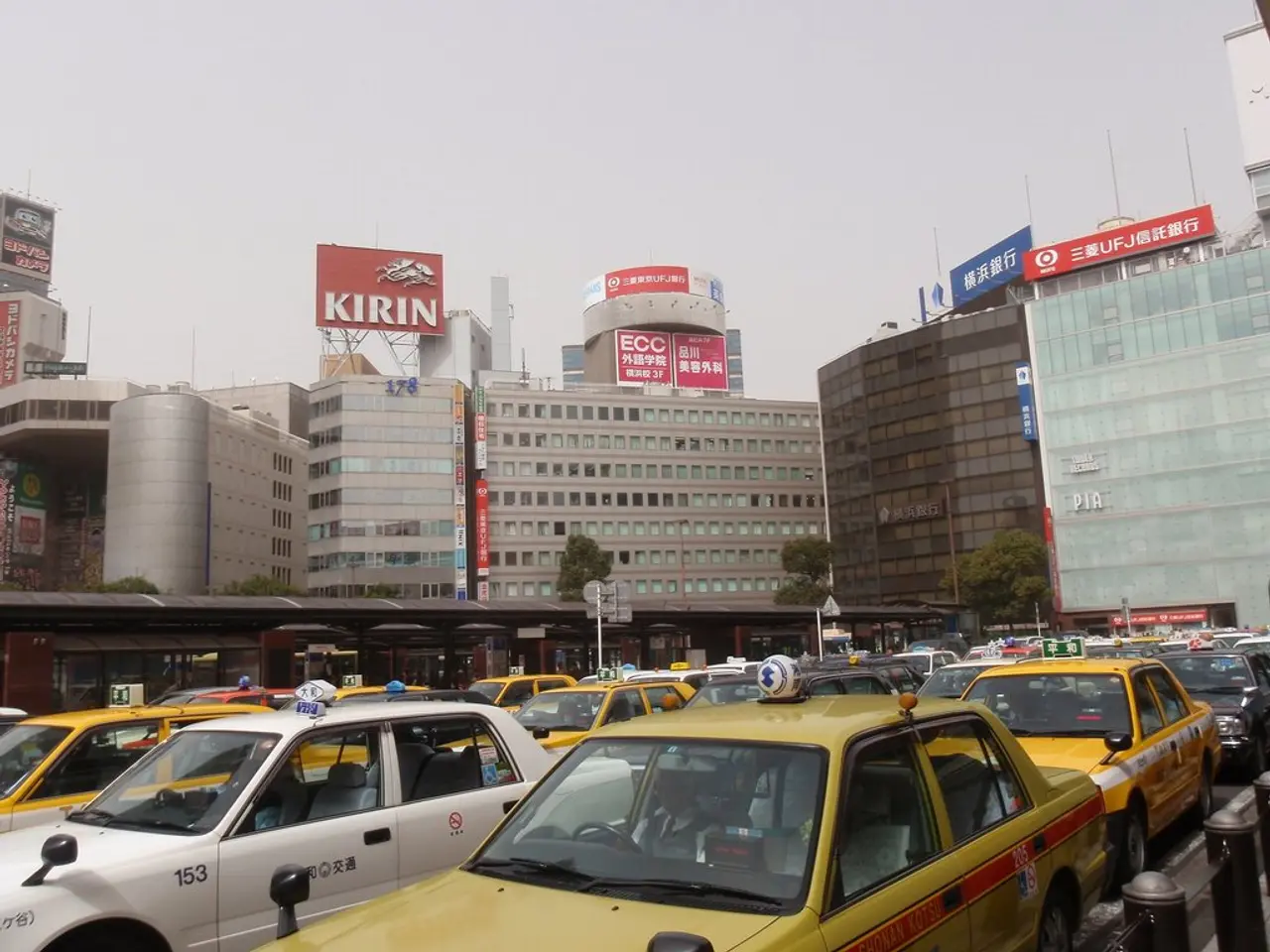Reduced petrol prices set for two weeks in Pakistan, with a decrease of Rs7.54 per liter announced.
Pakistan Experiences Mixed Fuel Price Impact
Pakistan has announced a revised fuel price structure, effective from August 1, 2025. The latest revision sees a decrease in petrol prices by Rs7.54 per liter, while high-speed diesel (HSD) prices have slightly increased by Rs1.48 per liter [1][2][3][4].
The petrol price cut is expected to bring relief to transportation and distribution costs for many goods, particularly those reliant on petrol-fueled vehicles. This reduction could potentially ease price pressures on essential items and lower inflationary pressures in the short term [1].
However, the increase in diesel prices, which is crucial for heavy transport and logistics sectors, might offset some benefits. Diesel is widely used in freight, agriculture machinery, and public transport, and previous hikes in diesel prices have led to transport operators raising fares and goods prices to compensate for higher operating costs [1]. As a result, the slight diesel price rise could contribute to upward pressure on inflation and prices of essential goods that depend on diesel-powered transportation.
Analysts suggest that the net effect may moderate inflation due to the larger petrol price cut. The fuel price reduction may provide some relief to consumers in terms of lower inflationary growth, but the diesel price increase might limit how much costs decrease, especially for goods highly reliant on diesel transport [1][2][3][4].
It's important to note that fuel prices in Pakistan are adjusted every two weeks and are influenced by global oil market trends, currency fluctuations, and changes in domestic taxation [5]. The country's reliance on imported fuel further amplifies the impact of these price changes [6].
Recent conflicts, such as the 12-day conflict between Iran and Israel in July, have escalated fuel price volatility [7]. However, the Pakistani government has ruled out supply shortages during such conflicts and has instructed oil marketing companies to maintain mandatory reserve levels [8].
Looking back, the government raised the price of petrol by Rs4.80 per liter on June 16, and the price of diesel by Rs11.37 per liter [1]. On July 1, the price of petrol was increased by Rs8.36, and the price of diesel was raised by Rs10.39 [1]. Earlier this month, the government hiked the price of petrol by Rs5.36 per liter [1]. The price of HSD was increased by Rs7.95 on June 16, and it currently stands at Rs285.83 per liter, up from Rs284.35 per liter [1].
In conclusion, the downward revision in petrol prices is likely to help reduce inflationary pressures and the burden on essential goods prices, but the simultaneous diesel price hike is expected to partially counteract this effect, leading to a mixed but somewhat balanced impact on overall inflation and prices in Pakistan for the coming fortnight [1][2][3][4].
References: [1] https://www.dawn.com/news/1671079 [2] https://www.thenews.com.pk/print/816238-oil-prices-to-be-revised-from-august-1 [3] https://www.bbc.com/news/business-53822663 [4] https://www.reuters.com/business/energy/pakistan-cuts-petrol-price-raises-diesel-price-2021-07-28 [5] https://www.dawn.com/news/1662725 [6] https://www.thenews.com.pk/print/785412-pakistan-s-reliance-on-imported-fuel-amplifies-impact-of-price-changes [7] https://www.dawn.com/news/1671079 [8] https://www.thenews.com.pk/print/816238-oil-prices-to-be-revised-from-august-1
The proposed fuel price adjustments could influence various sectors beyond transportation, such as the art and sport industries, which may experience increased costs due to higher transport expenses for supplies and equipment.
On the other hand, the reduction in petrol prices might positively impact the finance industry, as lower transportation costs could reduce operating expenses for banks and financial institutions.
Lastly, the fluctuating energy prices in the country, driven by global market trends, currency fluctuations, and changes in taxation, might have implications for the broader economic industry, as energy costs play a significant role in influencing production and manufacturing costs across various sectors.




